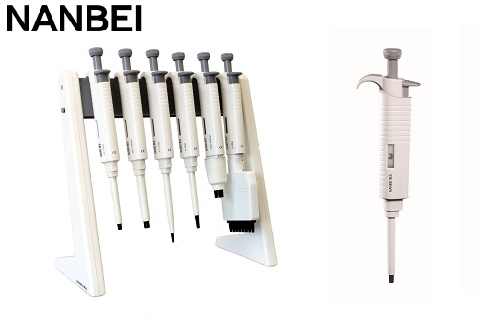
Technical Articles
NANBEI Is Professional On Providing One-step Solution Of Laboratory Instruments And Equipment
A pipette is a device for quantitatively transferring liquids. It has the advantages of flexible use, easy maintenance, small size, and convenient carrying. It is widely used in biology, chemistry, scientific research and other fields.
1. If it is not used for a long time, adjust the range of the pipette gun to the maximum scale, so that the spring is in a relaxed state to protect the spring. Not paying attention to this point will easily cause the piston to fail to rebound.
2. If the pipette needs to be used every day, it is recommended to clean and calibrate it every three months. It can be washed with soapy water or sterilized ethanol, then washed with distilled water, and allowed to dry naturally.
3. If the pipette holder is contaminated by liquid, the suction power will be reduced or the parts of the pipette holder will be damaged. The pipette holder must be removed for cleaning or replacement.
4. Before the daily experiment, wipe the shell with a clean wet cloth sprayed with 75% alcohol to disinfect the surface of the suction aid.
5. The pipette holder after each cleaning or replacement of the pipette should be checked for tightness. After aspirating, lift the pipette perpendicular to the liquid surface, and observe the liquid outlet of the pipette for about 30 seconds. (Note: Do not touch the pipette and do not press the operating button.) If no water leaks out, it means that the sealing is good. Otherwise, the pipette holder must be removed and reinstalled and the tightness check must be performed again.
6. If the suction aid is not used for a long time, the battery should be fully charged every 3 weeks.
